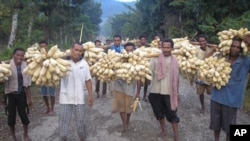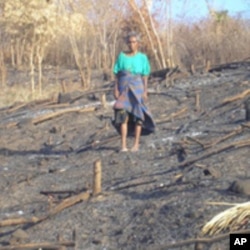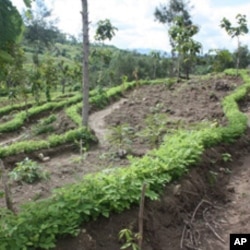As international agencies discuss how to increase access to food worldwide, a small group in Indonesia is already on the frontlines fighting hunger. Yayasan Mitra Tani Mandiri, or YMTM, is transforming the way farmers in some of the poorest communities of Timor plant and market their crops.
YMTM’s Sustainable Agriculture and Fair Marketing Initiative is paying off, turning more than 780 hectares of slash-and-burn fields to permanent agricultural plots.
The initiative began in the district of Timor Tengah Utara in 1996, when a group of seven young graduates from agriculture college returned to their home village with the determination to improve local farm production. It has since spread to 40 villages.
Timor Tengah Utara is in the north central part of Timor in Indonesia. It is a very dry area with only three to four rainy months per year. Because of this, people struggled with a lack of food for four months out of the year.
To alleviate this situation, YMTM urged farmers to abandon the traditional “slash and burn” method of clearing land.
Syalomi Natalia, the communications officer with the Australian aid program ANTARA, which supports YMTM, says slash and burn systems reduce the effectiveness of the soil and waste moisture.
VOA reporter Dave DeForest's report on YMTM's work:
“It isn’t very good for the environment," she said. "The capacity of the farmers there to cope with the situation is very low,” she added
Protecting the environment is one of YMTM’s key goals.
Farmers are encouraged to build terraces and plant legumes in the soil. This helps guard against erosion, put vital nutrients back in the soil and help the soil retain moisture, which in turn, increases crop production and reduces food insecurity.
“We are working in a sloping area and then we just establish the terrace by using three legumes to establish the slopes so it means less of soil erosion and degradation,” says ANTARA’s Esnawan Budisantoso.
Maize is the staple food in Timor, and the group says its efforts have increased maize productivity by 38 percent. When the project started, local communities could count on just eight months of food security. That has increased to 11 months.
Besides this, the initiative includes a marketing plan that encourages farmers to sell their goods together, rather than independently. That unity has empowered growers in negotiations with buyers, boosting their revenues.
“Fair marketing system here means that we promote equal access of woman and man, improved bargaining power of farmers, promoting fair price and quality—fair quality—for both farmers and for traders as well,” explains Natalia.
The group says between 2007 and 2009, average household incomes went up 31 percent. And women are taking more prominent roles in business, even leading some of the local farmer’s organizations, something that is unusual for Indonesia.
People from surrounding areas have noticed the agricultural and marketing improvements in Timor Tengah Utara, and the international community has, too. YMTM is one of the winner’s of this year’s Equator Prize, an initiative by the U.N., governments, business and civil society that recognizes community efforts to reduce poverty through the conservation and sustainable use of biodiversity.






